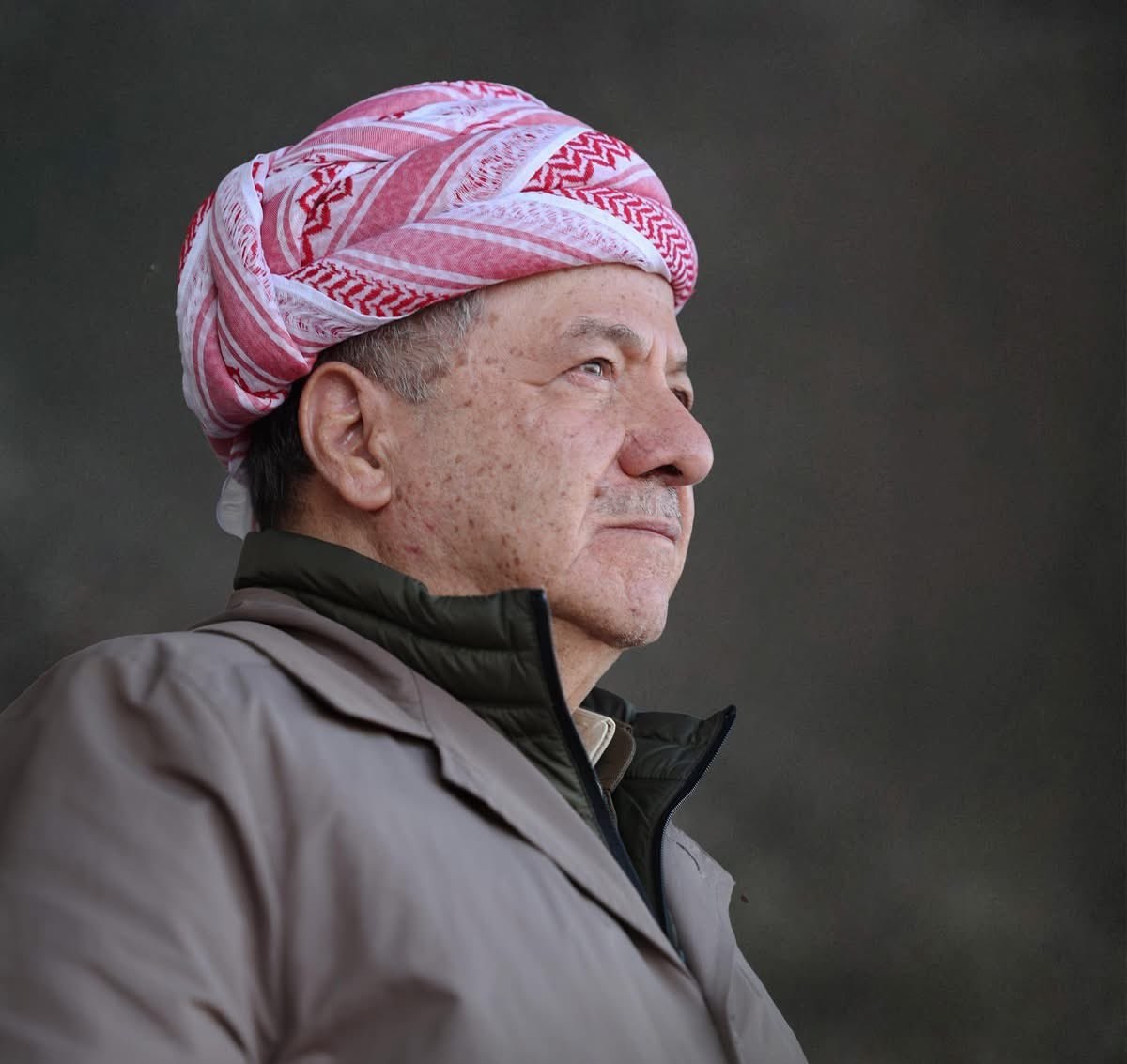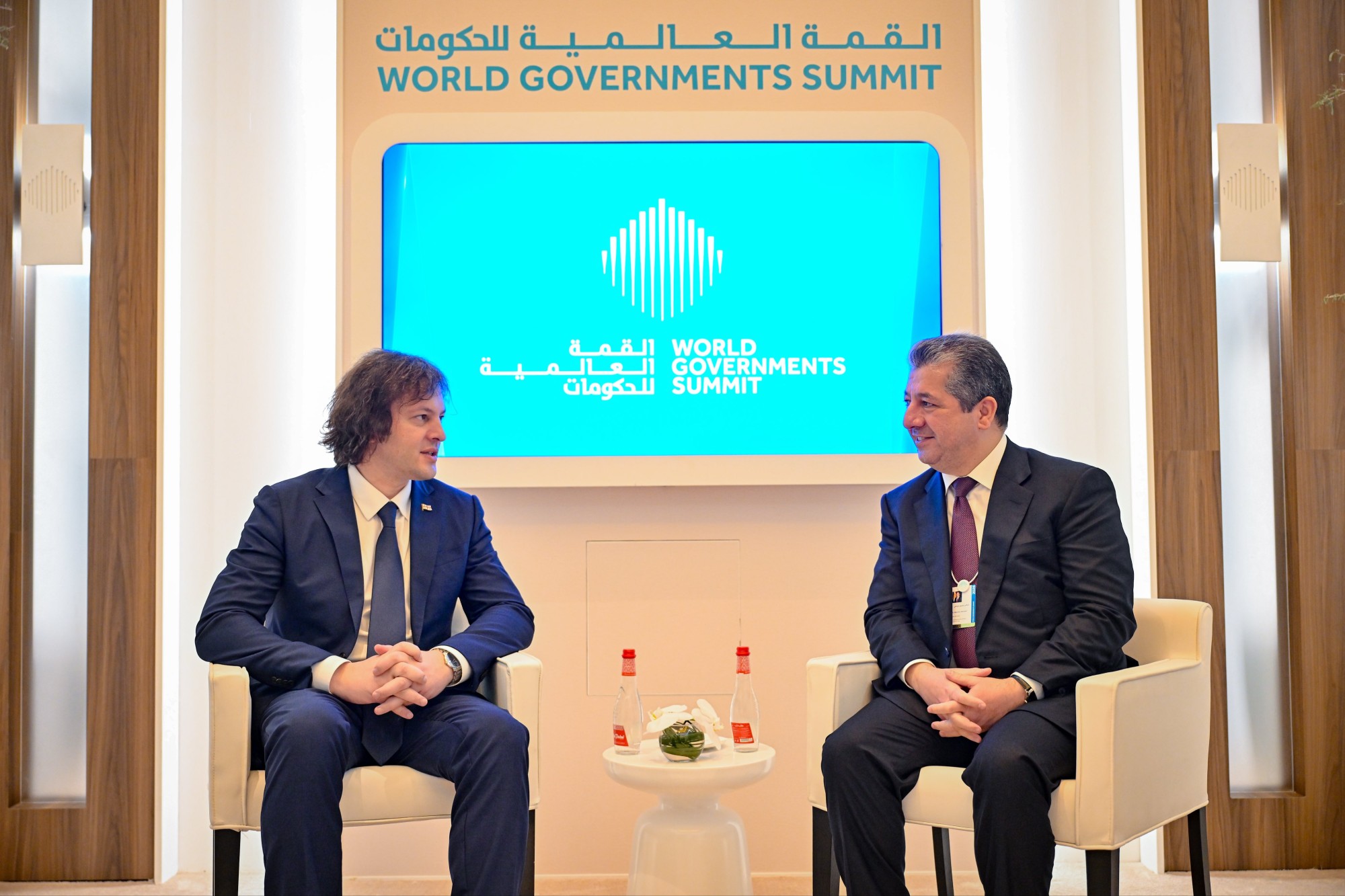On March 16, on the 36th anniversary of the Halabja chemical attack, in which 5,000 civilians were killed by the former Ba’ath regime, a moment of silence was held in the Kurdistan Region, including by the Ninth Cabinet of the Kurdistan Regional Government (KRG).
بۆ گیانی پاکی شەهیدانی کیمیابارانکردنی هەڵەبجە، ساتێک بە بێدەنگی وەستاین و سەری ڕێزمان بۆ ڕۆحی شەهیدان دانەواند. pic.twitter.com/NNT6B7J7NV
— KRG Dept. of Media & Information (@DMI_KRG) March 16, 2024
“In 1988, the world leaders said ‘Never again’ after the genocidal Anfal Campaign. The world was shocked! We all know what happened after that, in Syria and elsewhere,” National Senior Public Prosecutor of the Netherlands Simon Minks told Kurdistan Chronicle.
“That is why it is extremely important to commemorate Halabja and the other places that were attacked with chemical weapons,” he said.
Minks gained prominence in 2004 for prosecuting Frans van Anraat, the first individual convicted for supplying the chemicals that were used in the Halabja massacre to Saddam Hussein.
36 years ago today Saddam Hussein’s forces used chemical weapons against the Kurdish town of Halabja in N. Iraq. I got there a few days later and counted 5,000 bodies still lying in the streets.
— John Simpson (@JohnSimpsonNews) March 16, 2024
I went back to Halabja with the chemical warfare expert Hamish de Bretton-Gordon…
BBC veteran reporter John Simpson also posted on X recounting how he visited Halabja in March 1988 – a few days after the chemical attack – and “counted 5,000 bodies still lying in the streets.”
“I went back to Halabja with the chemical warfare expert Hamish de Bretton-Gordon in 2013. Hamish, Peter Leng, producer, Duncan Stone, cameraman, and I were all affected by the residual chemicals lingering in the basements of the houses where we filmed — 25 years later,” Simpson added.
“Halabja reminds the world about the connection between tyrants and the use of chemical weapons. Saddam tried to subjugate the Kurds with chemical weapons but failed. I visited Halabja a number of times and it motivated me to investigate chemical weapon use in Syria. One day, another tyrant – Bashar al-Assad – will be tried at the International Criminal Court,” chemical weapons expert Hamish de Bretton-Gordon told Kurdistan Chronicle.
“We must never forget Halabja and the valiant fight of the Kurds against tyranny. Dictators like Saddam, Assad, and Putin only recognise strength and exploit weakness. The Kurds showed the world strength in the aftermath of the Halabja genocide.”
Several Kurdish leaders also made statements about the Halabja chemical attack.
The crime of the chemical attack on Halabja is an attestation of the inhuman mentality of the enemies of the Kurdish people. Alas, 36 years after the Halabja tragedy, there are still some within the Iraqi state who work in pursuit of denying the rights of the Kurdish people.
— Masoud Barzani (@masoud_barzani) March 16, 2024
“The crime of the chemical attack on Halabja is an attestation of the inhuman mentality of the enemies of the Kurdish people,” Kurdistan Democratic Party President Masoud Barzani underlined in a post on X.
“Alas, 36 years after the Halabja tragedy, there are still some within the Iraqi state who work in pursuit of denying the rights of the Kurdish people,” he added.
Moreover, KRG Prime Minister Masrour Barzani, in a statement posted on X, underlined that it is unfortunate that Baghdad “continues to be unwilling to constitutionally provide reparations to the victims of the previous Ba’ath regime.”
نابێت بهێڵین ئەم تاوانەمان لەبیربچێتەوە.#HalabjaGenocide pic.twitter.com/e7kPxpNNLZ
— Masrour Barzani (@masrourbarzani) March 16, 2024
“We must not allow ourselves to forget these crimes nor allow Baghdad to forget them,” he added.
Read More: A 35-Year Quest for Justice
Furthermore, in a statement made on the anniversary of the attacks, Kurdistan Region President Nechirvan Barzani underlined the need to make comprehensive reparations to Halabjans and to the city, as well as to all the victims of the genocidal Anfal Campaign and the numerous crimes committed by the Ba’ath regime in the Kurdistan Region.
“The Iraqi government must fulfill its obligations and ensure justice for the victims,” he said. “And internationally, every endeavour must be undertaken to ensure that such crimes and massacres never happen again.”
Moreover, several diplomatic missions based in Iraq and the Kurdistan Region made statements or posts on X commemorating the attack, including the EU in Iraq, the UK, U.S., Turkish, Czech, Italian, Dutch, Armenian, German, Canadian, and Dutch consulates.
Today we remember the victims of the chemical attack on #Halabja in 1988. Our thoughts are with the victims and their families, who are still suffering under this terrible memory. #NeverForget! pic.twitter.com/8x3FiQBNo7
— German Consulate Erbil (@GermanyInKRI) March 16, 2024
A number of diplomats visited Halabja to lay flowers at the Halabja monument, including the French Consul General Yann Braem, German Deputy Consul General Benjamin Hanna and the UK Consulate General.
“Today marks the 36th anniversary of the chemical weapons attack on Halabja in which over 5,000 Kurds were killed and another 10,000 injured,” the U.S. Consulate General Erbil posted on X.
“The US underscores its commitment to stand with the people of the Iraqi Kurdistan Region, to ensure a secure, democratic and prosperous future,” it concluded.
“Despite the horrors of the past, Halabja remains a symbol of resilience and resistance against oppression,” the UK Consulate General in Erbil also posted on X.
Furthermore, the Organization for the Prohibition of Chemical Weapons (OPCW), based in The Hague, the Netherlands, in a statement said Halabja “serves as a reminder of the catastrophic consequences of chemical warfare. It also underscores the necessity to reinforce our collective commitment to disarmament, peace, and security.”
Therefore, it called on the international community to pursue a world free of chemical weapons. “Such a tribute would benefit the victims of Halabja,” the OPCW said.
Numerous commemoration events took place globally, including one in the United States scheduled for March 18, organized by the Global Kurdish Initiative for Peace (GKIP), a research initiative of the School of International Service at the American University in Washington, D.C, which will include several top global scholars on genocide.
Notable speakers at this event include U.S. Senator Chris Van Hollen, KRG Representative to the United States Treefa Aziz, and Director of the Office of Iraq Affairs at the Department of State Steve Bitner.
Please join us by registering via link below for our memorial event next Monday at the School of International Service, American University, for 36th Anniversary of the Halabja Chemical Attack. We have an excellent lineup of speakers & program! @AU_SIShttps://t.co/DGqIhaKq2T pic.twitter.com/b0O7SOEqJw
— Yerevan Saeed (@YerevanSaeed) March 12, 2024
“Commemorating the Halabja atrocity is about more than honoring and remembering the victims. It’s about educating people about such horrific crimes to prevent them from reoccurring in the future. It’s also a reminder that if we don’t govern ourselves, we always risk repeating history,” Yerevan Saeed, Director of the GKIP at American University, told Kurdistan Chronicle.
“So keeping the memory of the Halabja genocide alive is imperative to create a collective memory that is foundational for a national unity, something that Kurds need more than ever to protect what we have today in the Kurdistan Region.”

